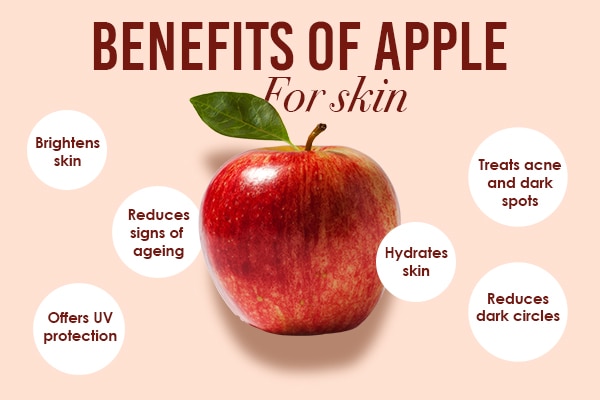Here are five benefits of eating apples:

1. Rich in nutrients – Apples are packed with vitamins (like Vitamin C), minerals, and antioxidants that help support overall health.
2. Supports heart health – Apples are high in fiber and contain flavonoids that can help reduce the risk of heart disease by improving cholesterol levels and lowering blood pressure.
3. Aids digestion – The fiber in apples, especially pectin, helps promote healthy digestion and can prevent constipation.
4. Boosts immunity – The Vitamin C in apples helps strengthen the immune system, aiding in the prevention of illness.
5. Helps with weight management – Apples are low in calories and high in fiber, making them a filling snack that can help with weight control by keeping you fuller for longer.
Do any of these benefits surprise you, or is there one you’d like to learn more about?
While apples are generally very healthy, here are five potential disadvantages:
1. High sugar content – While the sugar in apples is natural, eating them in excess may contribute to higher sugar intake, which could be a concern for those managing blood sugar levels, like diabetics.
2. Pesticides – Conventionally grown apples may have pesticide residues on the skin, which could pose a risk if not washed properly. Opting for organic apples can help mitigate this.
3. Tooth damage – Apples are acidic and can contribute to enamel erosion if consumed frequently or in large amounts. It’s a good idea to rinse your mouth with water after eating them.
4. Allergies – Some people may have an allergy to apples, particularly a condition known as oral allergy syndrome, where certain proteins in apples can cause itching or swelling in the mouth or throat.
5. Digestive discomfort – Apples contain fructose and sorbitol, which may cause bloating or discomfort in people with sensitive digestive systems or conditions like irritable bowel syndrome (IBS).
Are you concerned about any of these, or just curious about the potential drawbacks?